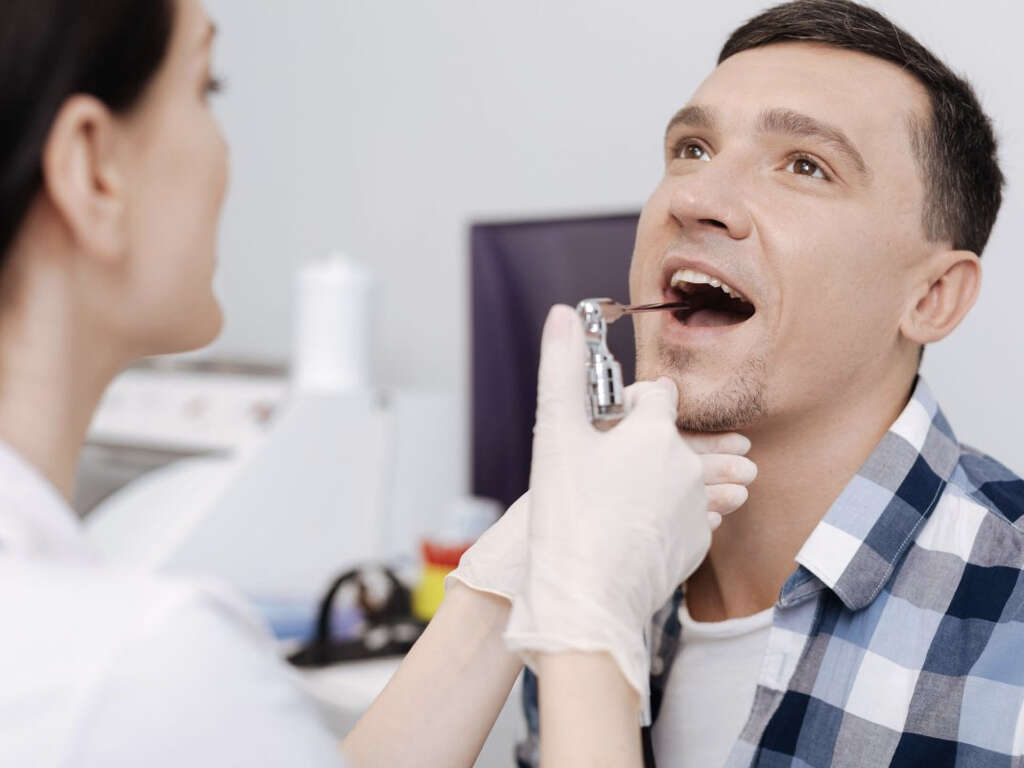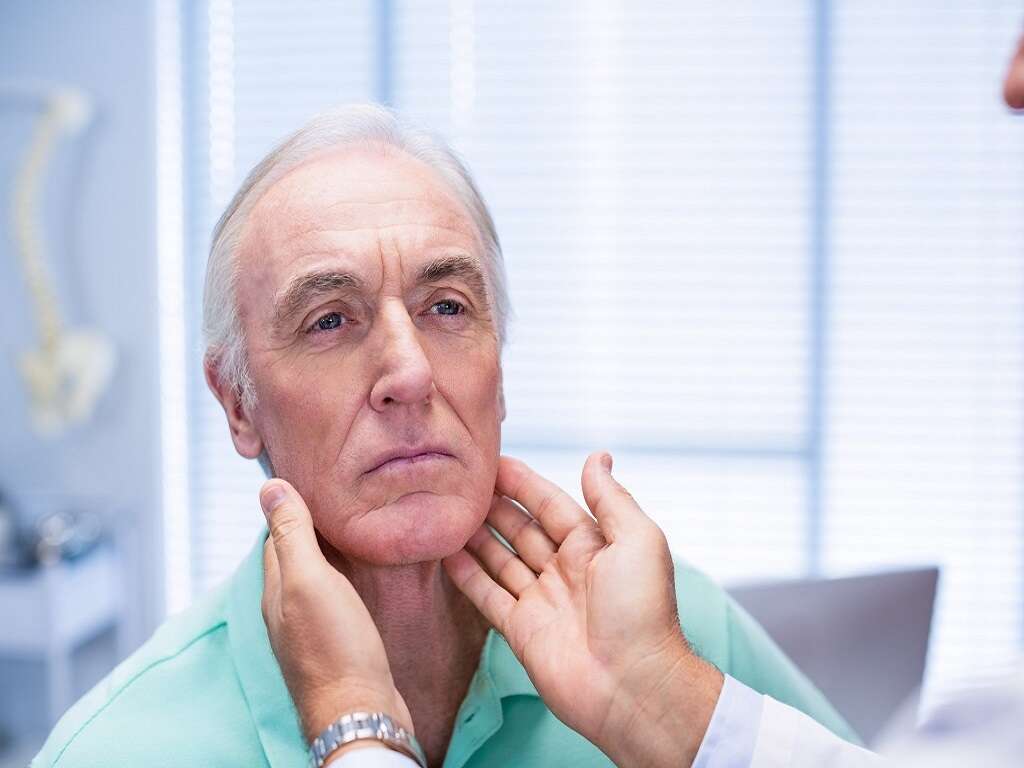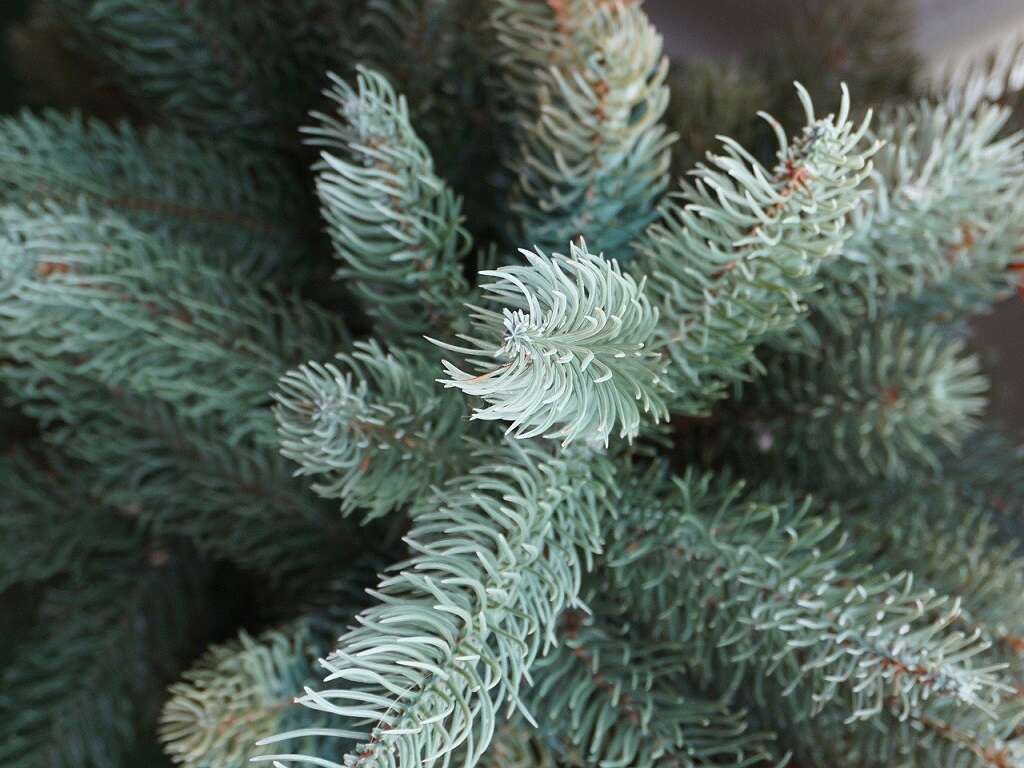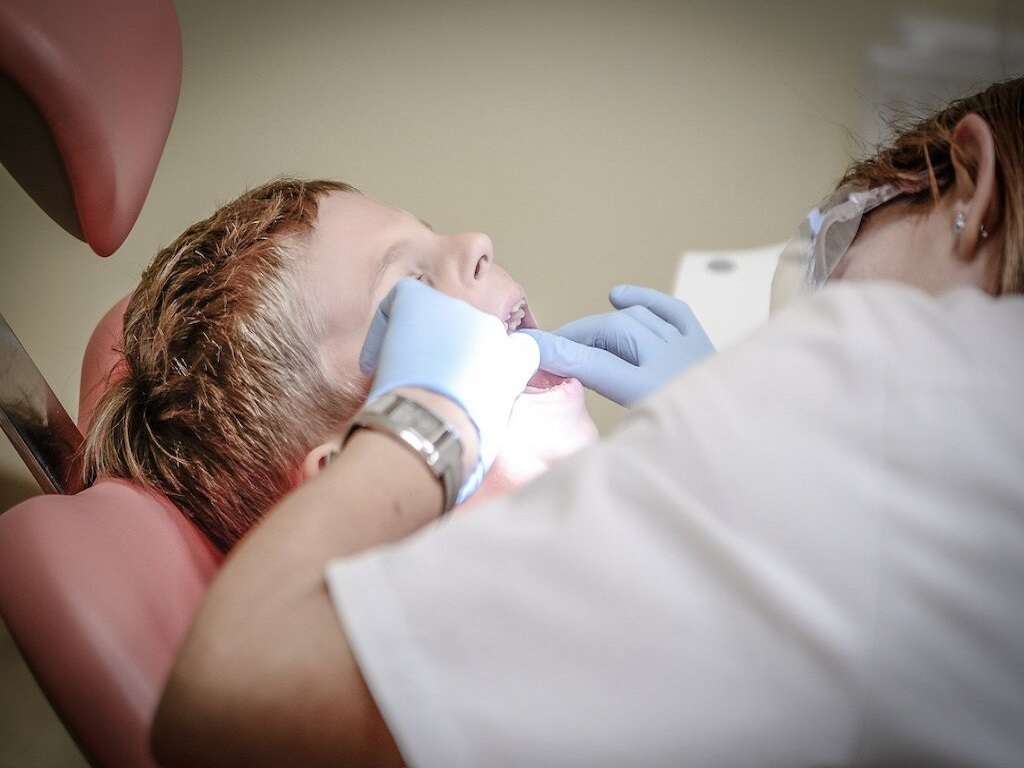How To Get Rid of Tonsil Stones
 Article Sources
Article Sources
- 1. 'Sore Throat.' Mayo Clinic, Mayo Foundation for Medical Education and Research, 21 July 2020, www.mayoclinic.org/diseases-conditions/sore-throat/diagnosis-treatment/drc-20351640.
- 2. Harding, Dr Mary. 'Tonsil Stones (Tonsilloliths): Causes, Symptoms & Treatment.' Patient.info, 13 Sept. 2018, patient.info/ears-nose-throat-mouth/sore-throat-2/tonsillolith-tonsil-stones.
- 3. 'New Study Shows Yogurt Consumption Could Lower Gum Disease Risk.' Contemporary Dentistry PLLC, www.dentistrywithaheart.com/blog/new-study-shows-yogurt-consumption-could-lower-gum-disease-risk/.
- 4. FRCS, Mike Dilkes ENT Surgeon. 'Laser Cryptolysis to Treat Tonsil Stones.' Mike Dilkes ENT, Mike Dilkes ENT, 23 Feb. 2020, www.mikedilkes-entlaser.co.uk/single-post/2020/02/23/laser-cryptolysis-to-treat-tonsil-stones.
- 5. 'College of Dentistry.' Eat Fruits and Veggies For A Healthy Smile | College of Dentistry | University of Illinois at Chicago, dentistry.uic.edu/news-stories/eat-fruits-and-veggies-for-a-healthy-smile/.
Tonsil stones are small, calcified masses found in pits and cavities in the tonsils. They're typically caused by an accumulation of bacteria, germs, mucus and food particles and have a foul odor, which frequently causes bad breath.
These small, yellowish stones rarely lead to complications and often dislodge on their own, but some people do suffer from chronic tonsil stones. The best way to get rid of tonsil stones is to prevent them in the first place. Good oral hygiene, regular use of mouthwash and a diet rich with antioxidant and antibacterial foods can help.
1. Using an Oral Irrigator
A popular method of getting rid of tonsil stones is to use an oral irrigator such as a water pick or flosser. An irrigator normally has an angled tip that can reach dental cavities and tonsillar crypts. It shoots water into hard-to-reach areas, which can blast out debris and assist in dislodging tonsil stones.
The tonsils are sensitive and prone to damaging easily. If any type of oral irrigator is used specifically for tonsil stone removal, it should have a gentle amount of water pressure. The aim is to remove the stones and not damage the tonsils during the process.
2. Gargling With Salt Water
Salt water is a well-known home remedy for getting rid of bacteria in the mouth. It's also believed to help soothe the discomfort and inflammation caused by a sore throat. Salt may help draw out bacteria from the site of an infection, while simultaneously protecting the gums.
A vigorous gargle with salt water may help dislodge tonsil stones. Gargling with a mixture of 8 ounces of lukewarm water combined with 1/2 to 1 teaspoon of table salt should be sufficient to make a difference.1‘Sore Throat.’ Mayo Clinic, Mayo Foundation for Medical Education and Research, 21 July 2020, www.mayoclinic.org/diseases-conditions/sore-throat/diagnosis-treatment/drc-20351640.

3. Coughing
Tonsil stones may be dislodged by coughing if they're small enough. In some cases, all that's needed is a hard cough to loosen a stone, if it's not rooted too deeply. If the stone is too large, coughing probably won't dislodge it.
Coughing is the body's reflex response to eliminating airway blockages and irritants in the throat. Sometimes, larger tonsil stones may irritate the lining of the throat and actually cause coughing.
4. Gargling With Apple Cider Vinegar
Apple cider vinegar's high acidity levels, antimicrobial and antioxidant properties may help to remove loose tonsil stones. This potent mouthwash can help break down the calcified stones of bacteria trapped in deep crevices.2Harding, Dr Mary. ‘Tonsil Stones (Tonsilloliths): Causes, Symptoms & Treatment.’ Patient.info, 13 Sept. 2018, patient.info/ears-nose-throat-mouth/sore-throat-2/tonsillolith-tonsil-stones.
Apple cider vinegar offers a natural alternative to over-the-counter mouthwashes and may also prevent bacteria from accumulating in the mouth. Individuals are encouraged to gargle with a solution of warm water and 1 tablespoon of apple cider vinegar.
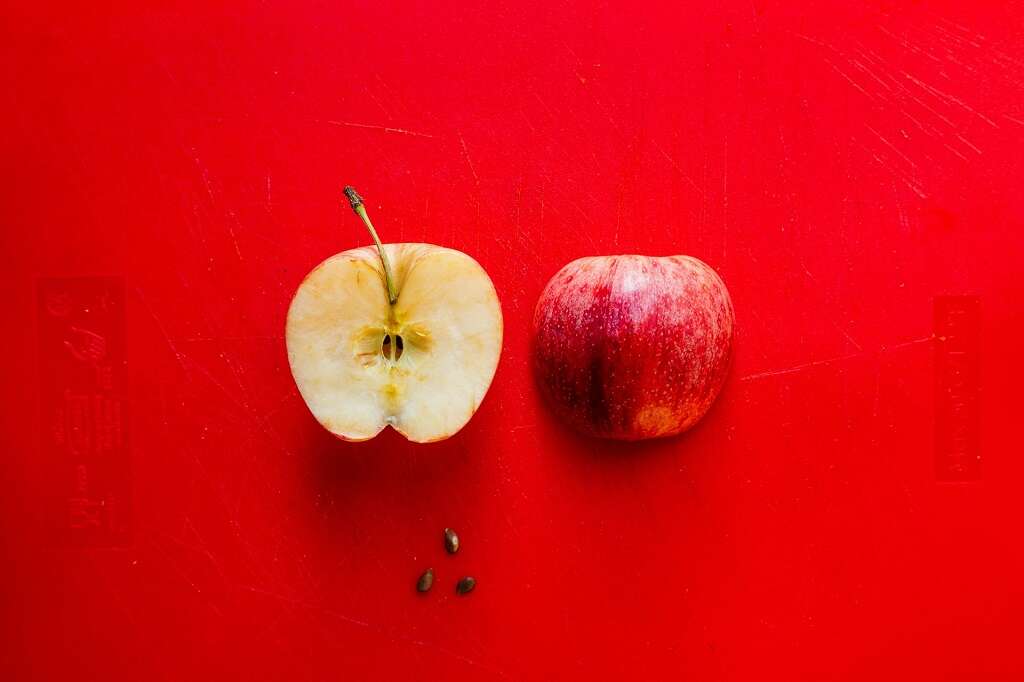
5. Dislodging Stones With a Cotton Swab
Tonsil stones are frequently felt and not seen. That's because they might be trapped deep within a cavity. Individuals can use a damp cotton swab to try to push small stones out of their crevice, but it does need to be done gently. Jabbing the tonsils could damage the area.
If the stone doesn't shift, another removal method needs to be considered. If the tonsil stone is released, the area should be cleaned by gargling with salt water or mouthwash.
6. Eating Plain Yogurt
Eating plain yogurt is a long-term solution that may prevent the build-up of bacteria in the mouth, which causes tonsil stones. Plain yogurt contains probiotics and a host of immune-boosting nutrients.
Although yogurt isn't an immediate cure to dislodge stones, it may help keep the mouth healthy. The calcium in yogurt can also help build stronger teeth and healthy gums. The good bacteria in yogurt, particularly Greek yogurt, may help balance the oral microbiome.3‘New Study Shows Yogurt Consumption Could Lower Gum Disease Risk.’ Contemporary Dentistry PLLC, www.dentistrywithaheart.com/blog/new-study-shows-yogurt-consumption-could-lower-gum-disease-risk/.
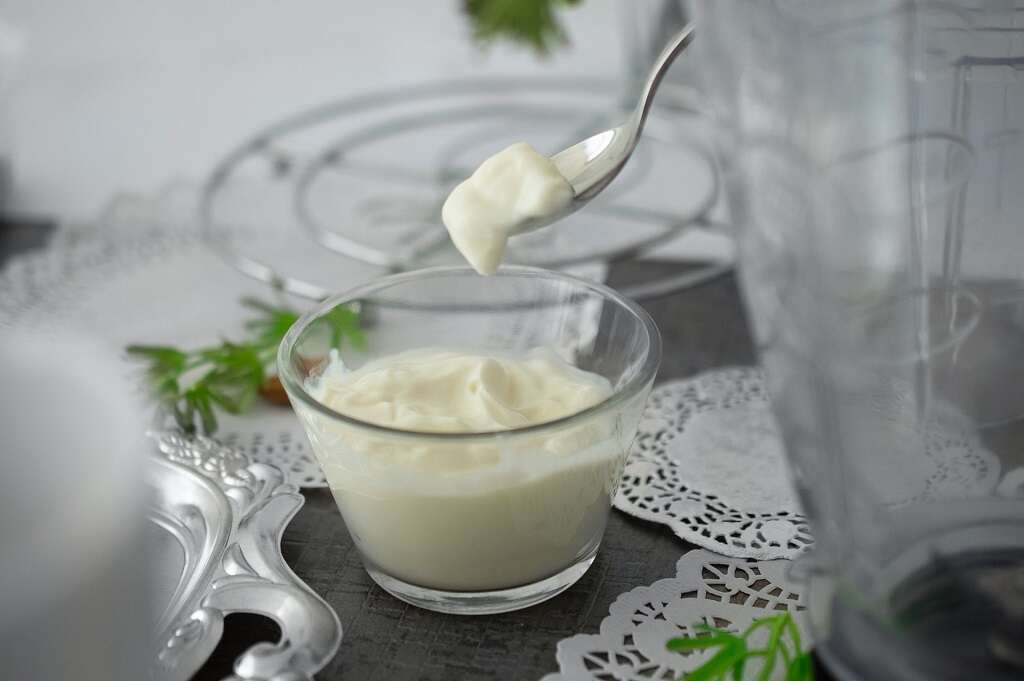
7. Undergoing Laser Treatment
Laser treatment is generally a last resort if tonsil stones can't be treated with other methods. Individuals tend to opt for laser treatment if they suffer from chronic tonsil stones. It's a viable solution for treating deep-seated or larger tonsil stones that can cause bad breath and infections.
A doctor performs the laser procedure, or laser tonsil cryptolysis, which involves removing crypts and pits while a person is under local anesthetic.4FRCS, Mike Dilkes ENT Surgeon. ‘Laser Cryptolysis to Treat Tonsil Stones.’ Mike Dilkes ENT, Mike Dilkes ENT, 23 Feb. 2020, www.mikedilkes-entlaser.co.uk/single-post/2020/02/23/laser-cryptolysis-to-treat-tonsil-stones.
8. Taking Antibiotics
Because tonsil stones are loaded with bacteria, they can cause recurring infections. Antibiotics may be prescribed to clear up any oral infection. Treatment with antibiotics can kill off the bad bacteria in the mouth, reducing the size of tonsil stones and clearing up any infection in the surrounding areas.
Although antibiotics can help, they won't target the root of the problem. A course of antibiotics may provide temporary relief, but individuals also need to practice good dental hygiene.
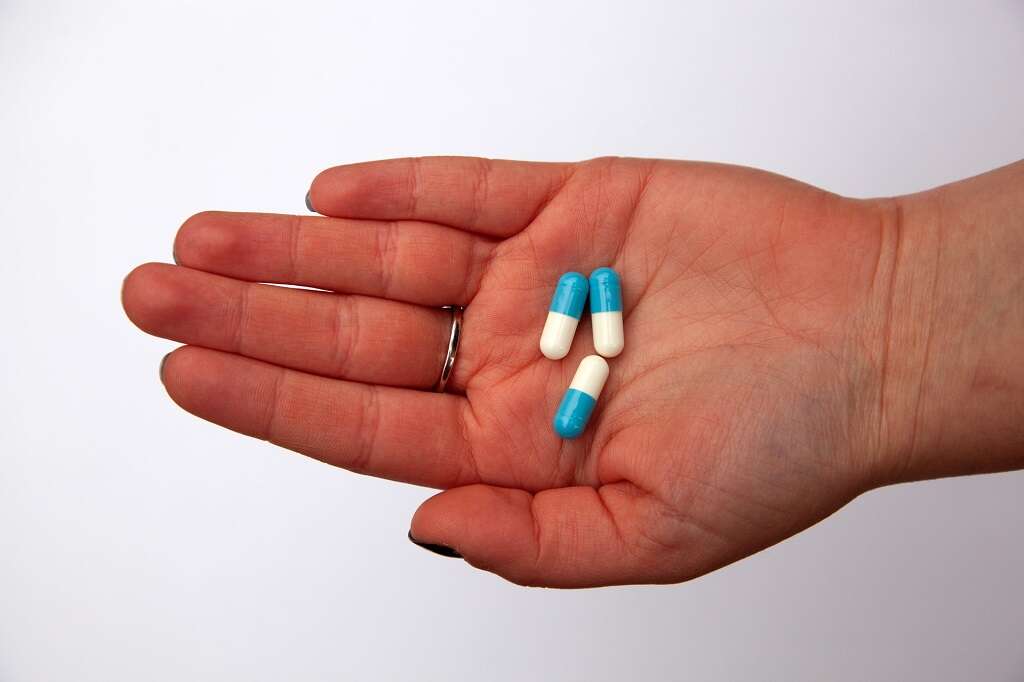
9. Following a Healthy Diet
There are certain food groups that can exacerbate the growth of tonsil stones. To eliminate tonsil stones, avoid foods that have a reputation for getting stuck in cavities, such as include seeds, meat and popcorn.
Vegetables with antibacterial properties, such as onions and garlic, should be included in a healthy diet. Fruit and vegetables that encourage saliva production, such as apples, celery and carrots, should also be consumed as saliva contains compounds with antibacterial properties.5‘College of Dentistry.’ Eat Fruits and Veggies For A Healthy Smile | College of Dentistry | University of Illinois at Chicago, dentistry.uic.edu/news-stories/eat-fruits-and-veggies-for-a-healthy-smile/.
10. Getting a Tonsillectomy
A tonsillectomy should only be considered for severe cases of tonsil stones that can't be treated with conservative measures. If a partial laser tonsillectomy isn't an option, a doctor may recommend a complete tonsillectomy. This surgery involves the full removal of tonsils, which in turn can permanently eradicate tonsil stones.
Tonsil stones causing long-term inflammation, repeated infections and issues with swallowing are signs of a prolonged problem. These chronic issues should be assessed and addressed by a healthcare professional.



